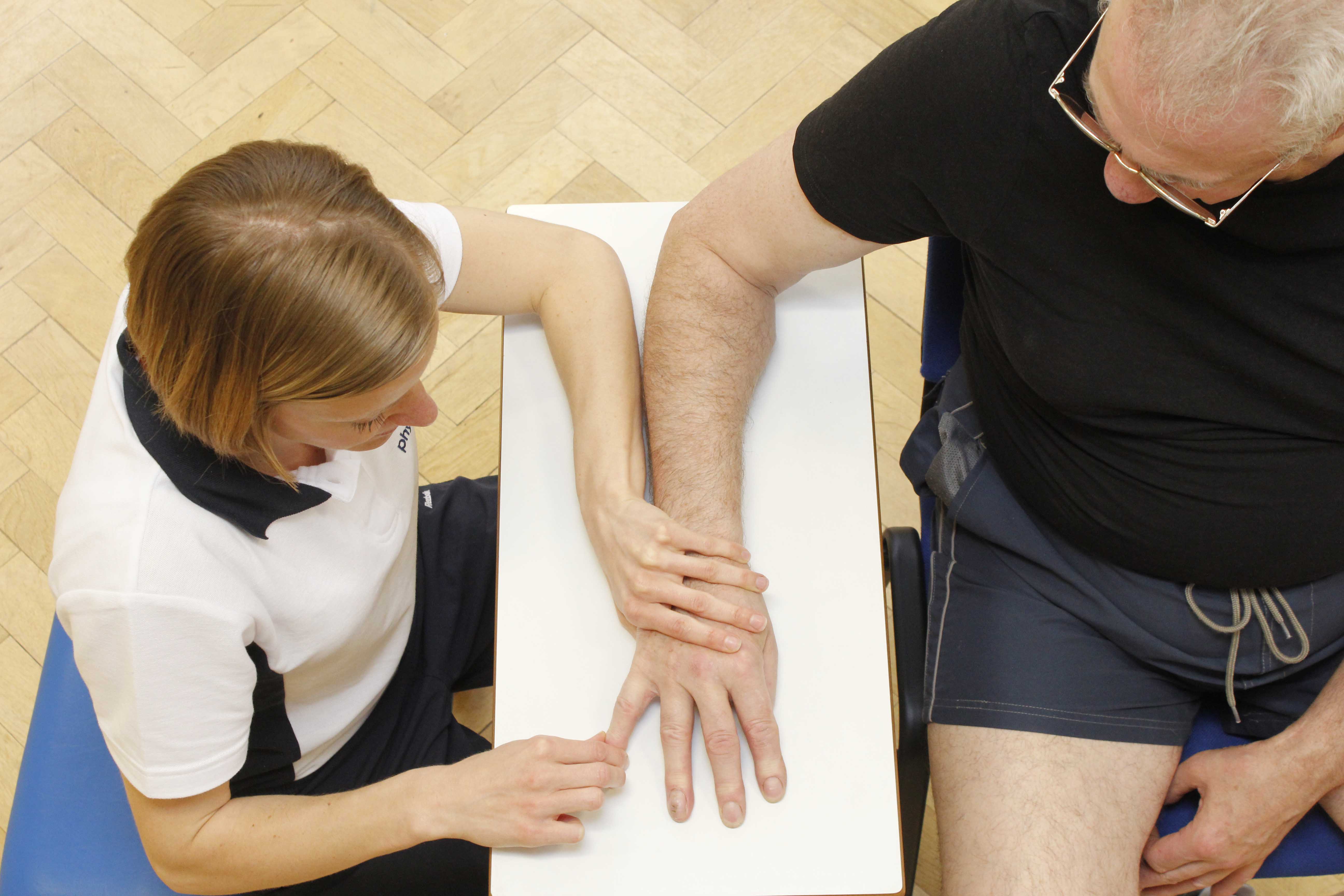Nerve Repair of the Hand
There a three main nerves in the hand whose responsibility is to supply and innervate (stimulate action) specific areas of the hand and fingers. They originate in your neck and travel over your shoulder and down your arm to your fingers. Together these allow us to feel pain, hot and cold, fine and crude touch as well as stimulate specific muscles to move individual fingers. Each nerve has a specific dermatome (an area of skin supplied by the sensory fibres of a nerve) and myotome (group of muscles innervated by a nerve) which corresponds to a specific area on your hand.Therefore, symptoms of nerve injury are directly related to the injured nerve. These nerves are:
- Radial Nerve –supplies sensory stimulation to your thumb, and half your index finger
- Ulnar Nerve - supplies sensory stimulation to your 5th finger, half your ring finger and the lateral side of your palm
- Median Nerve–supplies sensory stimulation to your middle finger, half your index and ring finger and the medial surface of your palm.
- Neuropraxia –the nerve is overstretched but remains intact causing minimal sensory or motor dysfunction.
- Axonotmesis – the nerve is compressed and the continuity of the nerve is lost. This causes temporary loss of function.
- Neurotmesis – the nerve is severed causing complete loss of sensory and motor function.
- End to end closure – the two ends of the severed nerve are reattached
- Nerve graft – part of an intact nerve is transplanted to restructure the damaged nerve
- Vascularised nerve graft – as above but used when there is no local blood supply to the damaged nerve e.g. burn
- Nerve Transfer – an intact nerve is transplanted to restructure the damaged nerve
 Above: Hand and finger mobilisation exercises performed by MSK physiotherapist
Above: Hand and finger mobilisation exercises performed by MSK physiotherapistSymptoms Following Nerve Repair Surgery
Following nerve repair surgery, your hand will placed in a protective splint for a minimum of 3 weeks to help protect the repair, aid recovery and maximise rehab potential. Common symptoms following nerve repair surgery include:
- Swelling
- Pain
- Numbness
- Sensory Deficits
- Motor Deficits
Physiotherapy after Nerve Repair Surgery
Following nerve repair surgery it is essential to start physiotherapy immediately in order to enhance rehab potential. Physio.co.uk will compile a thorough history and then develop a specific rehabilitation programme to treat both acute and long term symptoms with focus on restoration of sensory and motor function. Due to the slow healing capability of nerves (1mm per day), rehabilitation can take up to several months.
Weeks 1-3
Initial treatment will concentrate on managing the surgical procedure and preventing complication from occurring. Focus will be placed on minimising pain and swelling as well as providing a platform for optimal healing and restoration of function. Treatment will include:
- Cryotherapy (Ice)
- Pain management
- Wound management
- Splint use – used to protect the repair from overstretch and prevent muscle contractures allowing for maximal use of hand in the later rehab
- Passive range of movement exercises of entire upper limb (10 days+)
- Advice
Weeks 4-8
After 3 weeks of physiotherapy, you will have had your protective splint removed and be able increase your rehabilitation. Physio.co.uk will provide a continuation of exercises with added focus placed upon sensory restoration and motor function. Treatment will include:
- Sensory stimulation
- Motor stimulation
- Passive and active movements
- Early strength work
- Electrical stimulation
- Proprioceptive re-training
- Neural mobilisation
Weeks 8+
At week 8 your rehabilitation you will have seen improvements in both sensory and motor abilities. Physio.co.uk will now intensify treatment sessions in order to maximise function and mobility of your hand. Treatment will include:
- Increased sensory stimulation
- Increased motor stimulation
- Passive and active movements of upper limb and neck
- Progressive strength work
- Electrical stimulation
- Advanced proprioceptive re-training
- Neural mobilisation
- Scar management
- Hand dexterity and functional activities
- Advice on long term management
Summary
Nerve repair surgery of the hand is a complex and delicate surgery performed to reconnect a torn or severed peripheral nerve. The nerves of your hand provide sensory input and information and allow for muscle control and movement of the hand and fingers. When these nerves are damaged they can cause significant problems with movement and hand function. Due to the complex nature of nerves it is essential to undergo a comprehensive and progressive rehabilitation programme with Physio.co.uk that focuses on restoration of sensory and motor function. Call Physio.co.uk now on 0330 088 7800 for more information or to book an appointment please contact us.

 0330 088 7800
0330 088 7800





































